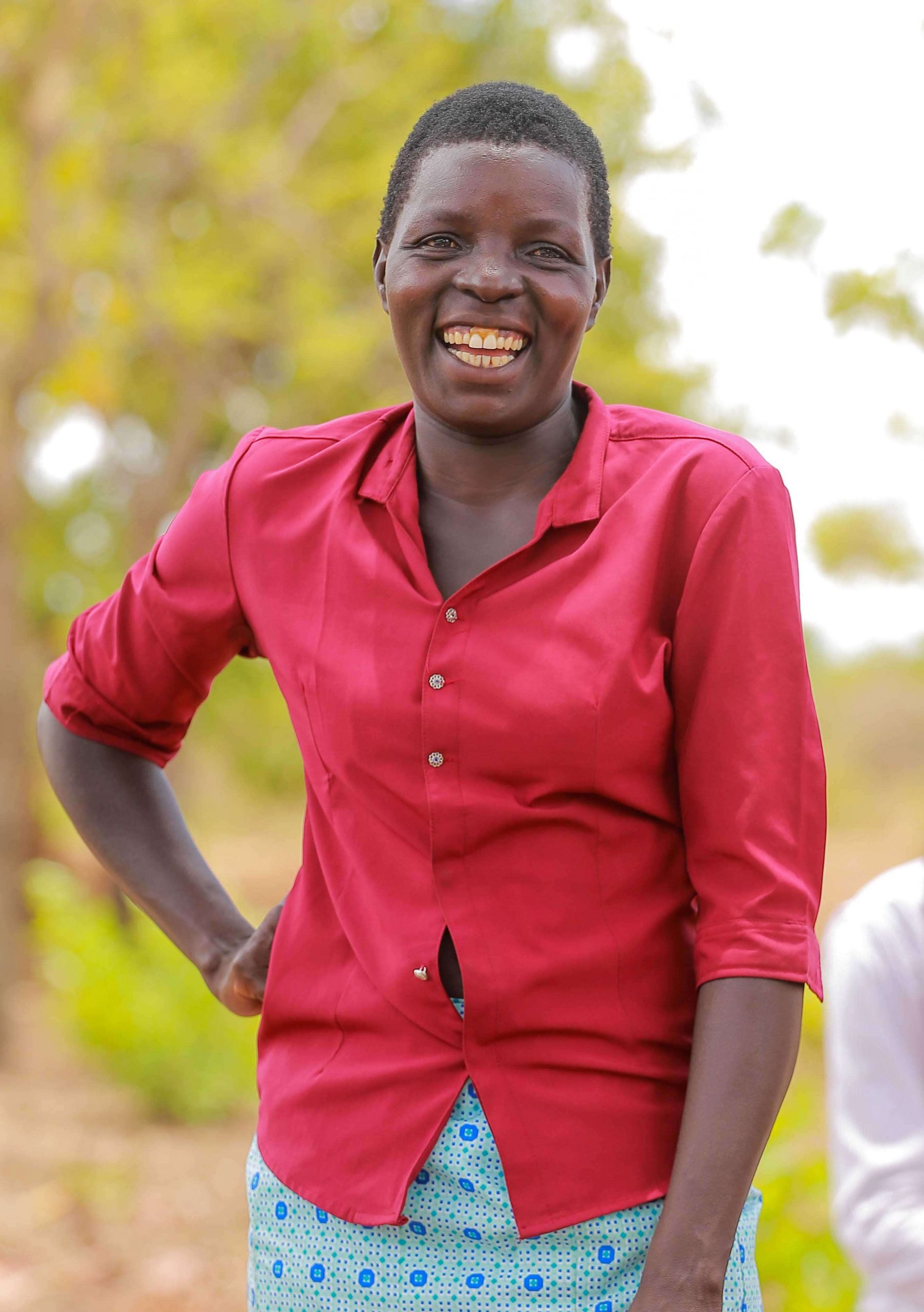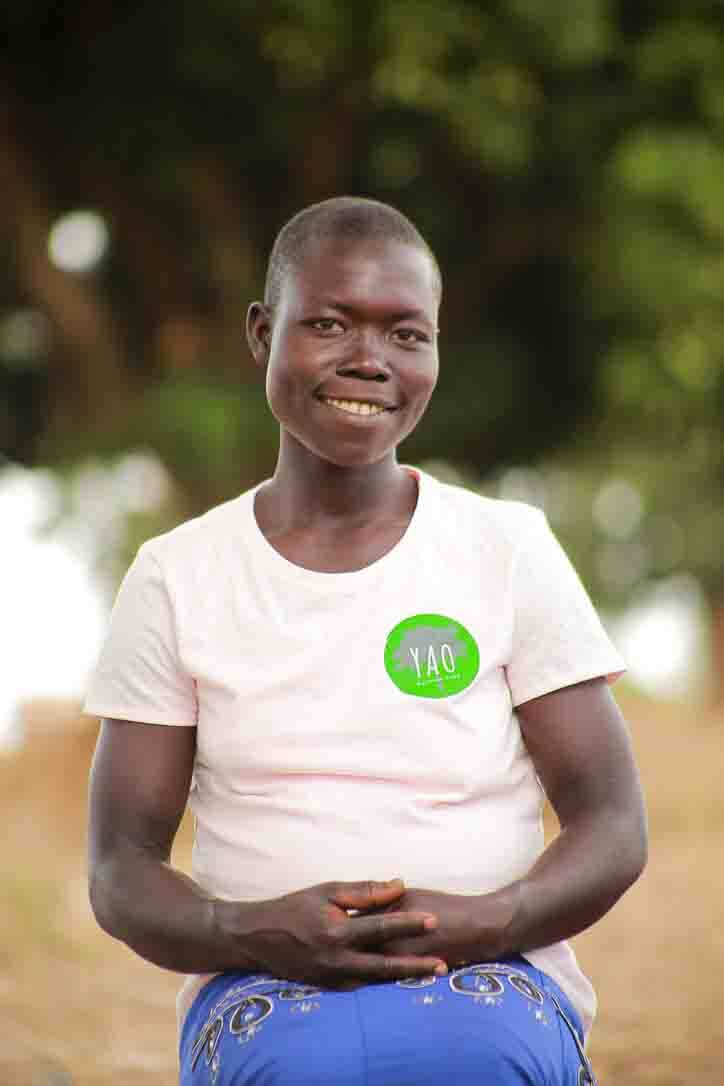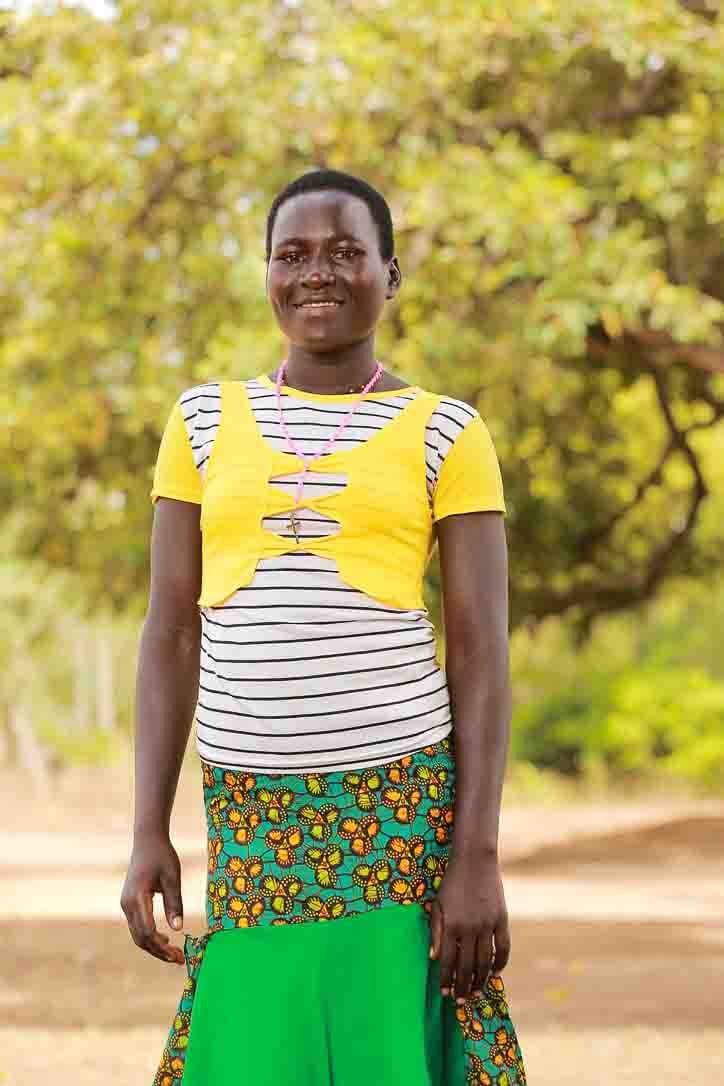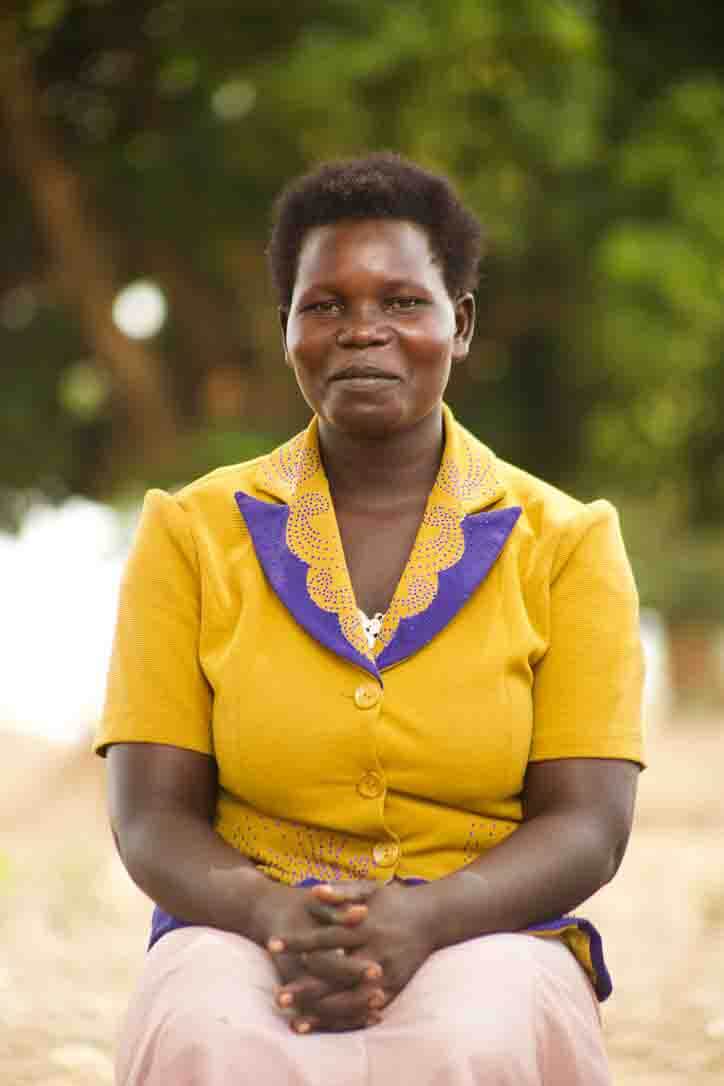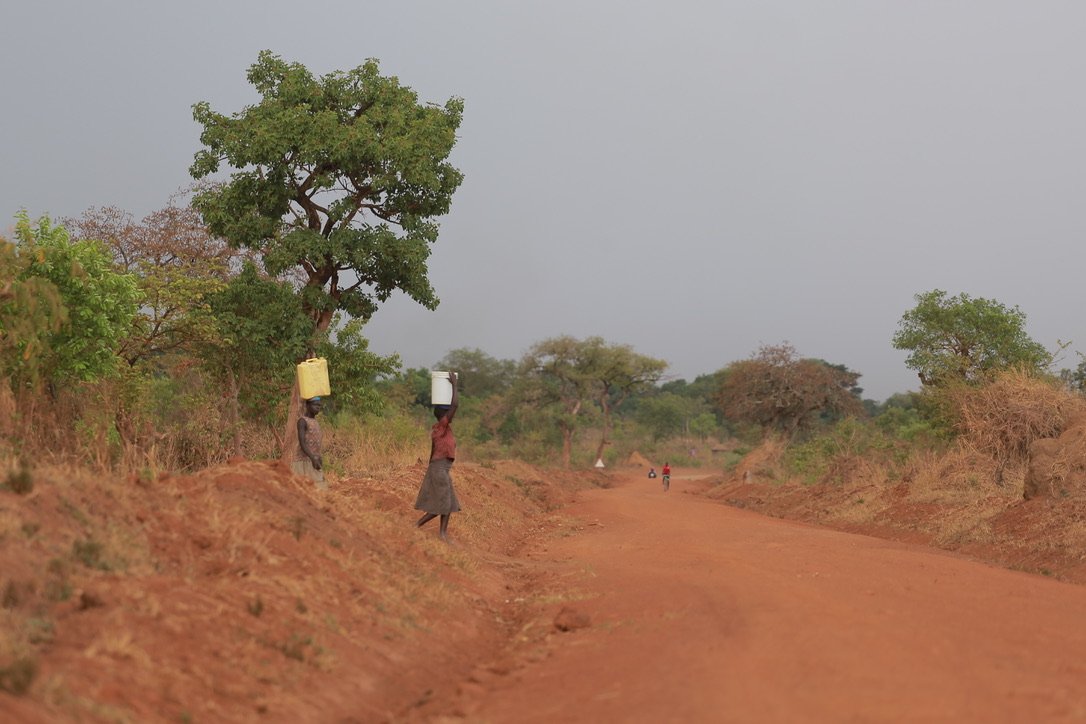Meet the women
Kopango!
(=Hello in local language)
Do you want to know what her life is like? Read “A day in her life” below.
A day in her Life

On average the annual income per person is less than 65 USD per year. Most people survive on subsistance farming; farming a small parcel of land by hand to try and cultivate enough food for the family and a bit extra to be sold on the market. That money will have to cater for everything from phone credit and clothes, to schoolfees and any doctors visit. Owning a bicycle is life changing and a status symbol. Cars are rare. Owning a phone is a priviledge and you have to walk for an hour or more to the nearest village to get it charged.
Families are made up out of a husband and wife and 8 or more children. Traditionally men head the household, are allowed to have more than 1 wife, own the land and make all decisions including how money is spend and how many children the family will have. Boys are much more likely to be send to school compared to girls. As a result only 61% of women can read and write. Men are expected to pay a bride price to the girls parents and girls are married off early: 59% of girls is married before the age of 18. Once married, girls are expected to work the land, take care of the household and birth children. Often they are regarded as property of the husband. It is not surprising therefore that one in every two 18 year old girls is either pregnant or has already given birth at least one time.
An average day in her life looks like this; Generally she wakes up with the children at 5am first walking for however long it takes to the nearest water source. Most often this is a natural well or stream. If she is lucky this is a manual waterpump or a borehole so that she can get cleaner water. Here she lines up with the other women and children to get her jerrycan filled before walking home with the jerry can on her head. Some of the kids may be send to collect firewood in the surrounding area. When they come back home she cooks a of a cup of maizemeal porridge on a charcoal or firewood stove. After breakfast she goes with the children to the farm land and together they do whatever needs doing such as digging, weeding or sowing seeds. All by hand. If there is something to be sold at the market the husband will most likely take it there and collect the money. When it becomes too hot the woman and kids go back home.
They wash up and prepare lunch. Lunch is likely to be posho (cooked maizeflour) and cooked beans. If they are lucky they might have rice. Meat such as beef or chicken is reserved for special celebrations like Christmas. After lunch, in the afternoon she gathers the laundry and washing basins and walks to the water source so that she can do the laundry by hand. After returning she does the dishes and any other chores that need to be done. Dinner may or may not be prepared depending on the season and their wealth. At 7pm it is dark and after finishing up they all go to bed. There is not much you can do at night without any light or electricity. The husband is likely to go to the bar to play cards and drink.
That is their day to day life. But to compound the challenges of this hard life they also struggle with the heritage of the decades long LRA insurgency which has only been resolved relatively recently in 2008. During the insurgency 90% of the population of Northern Uganda, 4 million people, were forced to live in internal refugee camps for their safety. About 16.000 children were kidnapped by the Lords Resistance Army. These children were then used as childsoldiers and sexslaves, often being forced to kill their own parents and siblings in horrific ways. After the insurgency these children now (young) adults have had to go back home to their community where they were welcomed with less then open arms. Especially the girls, being pregnant or already with the children of rebels, possibly HIV positive, were stigmatised and still live with that legacy every day. Imagine everything that they have seen and have gone through. More tangible is the predominance of female headed households. Many women lost their husbands during the war and now care of their family by themselves. Alternatively many children lost their parents, leaving the oldest surviving sibling in charge which was often the girl.
But you know what, when you meet them, you would never know any of this. These women are strong, joyful, and amazing. What they need is not sympathy. They need someone who believes in them and gives them the opportunity and encouragement to think about what they really want from their life. How they would like their future to unfold. If that is going (back) to school, opening up a small business, or building a new, better home, or maybe it is having more kids or travelling the world. That is what Caïo strives to do. We can’t change or define their lives for them. Even if we could, that is not our place to do. All we can is give them opportunities, remind them that they can do anything they want to do, cheer them on and be humble as we stand next to them on their journey.
And we are proud as we do so. In the past 5 years many things have changed. Many of our suppliers now have small solar units at home to light a light bulb and charge a phone. Imagine the time won by being able to study or work after 7pm in the evening. With at least 3 sources income for their family they now send all their children to school and are able to eat 3 meals a day year round. They are investing to expand their farm, have bought a bicycle to bring produce to the market, or are looking forward to opening up a shop. Life is still not easy but it is most definitely easier than before thanks to Nilotica shea butter.


